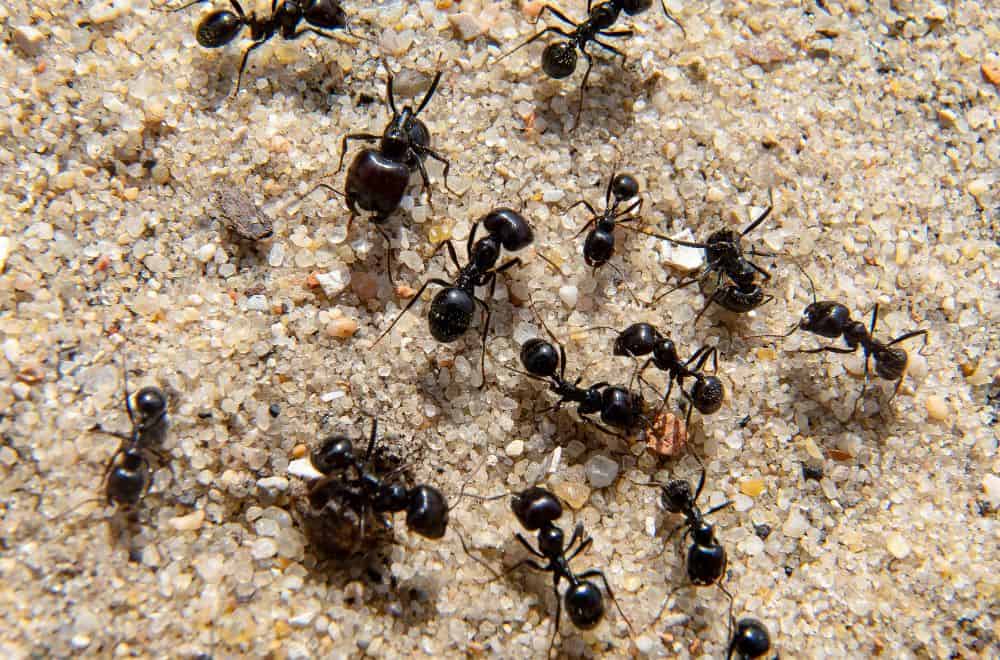Most ants are nuisance pests, meaning they are irritating but harmless. However, some species can cause more problems than you expect, so you should find a way to eliminate these insects from your home and yard.
In most cases, there is no need to use chemicals, and finding what smells do ants hate is often enough to solve the problem. For instance, they avoid essential oils, lemon juice, white vinegar, and spices. Besides, applying some of them has the additional effect of making the air in your home fragrant and fresh.
Smells ants hate |
| Oil of lemon eucalyptus |
| Tea tree essential oil |
| Peppermint essential oil |
| Lemongrass essential oil |
| Cinnamon |
| Lavender |
| Mint |
| Thyme |
| Rosemary |
| Basil |
| Chrysanthemum |
| Rue (herb-of-grace) |
| Garlic |
| Lemon juice and rind |
| Citrus peel |
| Cucumber peel |
| White vinegar |
| Cayenne powder and black and red pepper |
| Coffee grounds |
| Chalk or talcum (baby) powder |
| Neem oil |
The Best Ways to Use Smells to Deter Ants
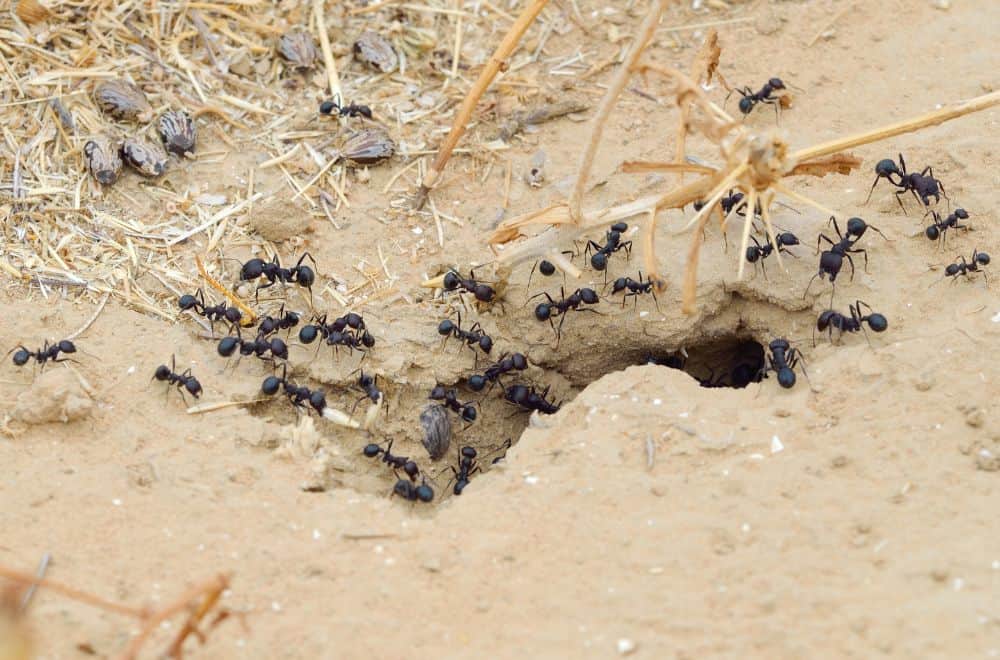
Entomologists asses that approximately 12,000 ant species live worldwide. It is 20 quadrillion ants out there, or about 2.5 million of these insects per only one human. Most ants are harmless, but many people don’t like finding them inside their homes.
The most common ant types invading houses in the US are:
- Pavement ants
- Carpenter ants
- Stinkin’ odorous ants
Once you notice ants in the house, the first step is identifying their type and finding a nest. The next thing to do is to eliminate their trails and choose one of the natural repellents to deter them.
Depending on the repellent you use, there are a few ways to get rid of ants, including:
- Plant fragrant herbs in your garden
- Make a repellent spray of chosen essential oil
- Drip a desired essential oil into cotton balls
- Create essential oil barriers and use ant baits
- Arrange garlic cloves
- Store food in tightly sealed containers to cut off food sources
- Keep your home and patio clean to eliminate ant entrances
- Use commercial repellents only when natural methods fail
- Call professional exterminators to solve massive invasions
What Smells Do Ants Hate?
There is no reason to use chemicals against these eusocial insects since several home remedies successfully eliminate them. They hate many scents, so arranging some plants or spices around the entrances is enough to solve the problem.
1. Oil of lemon eucalyptus

This oil type is a bio-pesticide for ants thanks to the citronella it contains. Drip a few drops of oil of lemon eucalyptus on a few cotton balls and place them in the ants’ paths.
A compound cineole from eucalyptus is an official repellent, even against red fire ants. Keep these cotton balls out of kids’ and pets’ reach and replace them weekly for the full effect against ants.
2. Tea tree essential oil
Add several drops of tea tree oil in two cups of water and spray the solution near windows and doors. Another option is to place cotton balls soaked with this oil in a few places inside the house and let it act like a natural repellent for ants.
3. Peppermint essential oil
Peppermint essential oil contains menthol and terpene. These chemicals toxic to ants make this product an excellent repellent. Prepare a mixture of a half cup of water, 10 to 20 drops of this essential oil, and two tablespoons witch-hazel.
You can add vodka to the solution before pouring it into a spray bottle. Then, spray baseboards and windowsills to make a scent barrier for insects, but be careful if you have cats. This oil can be harmful and potentially poisonous to them.
4. Lemongrass essential oil
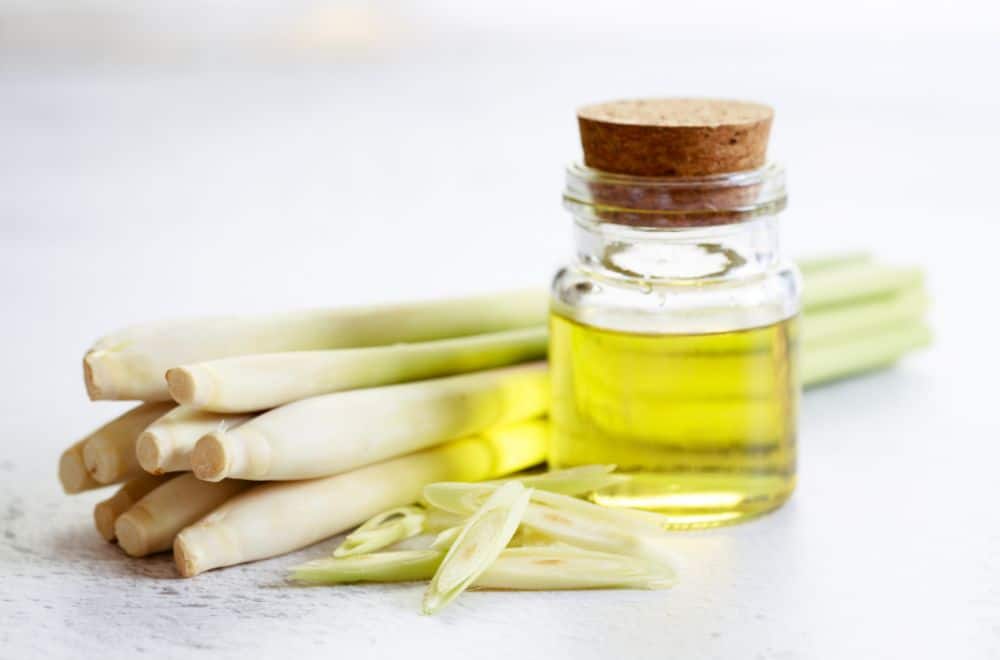
Ants dislike the lemongrass essential oil smell, probably because it destabilizes their scent receptors. That makes searching for food almost impossible. Drip it next to entrances to prevent ants from entering your home.
5. Cinnamon
The cinnamon essential oil contains trans-cinnamaldehyde, a highly effective compound against carpenter ants, pest ants, and biting red ants.
You can also sprinkle powdered cinnamon or place cinnamon sticks on windowsills to repel these annoying insects. Be aware that ground cinnamon clogs the ants’ breathing spiracles, suffocating them.
6. Neem oil
Neem oil extracted from the neem tree is a natural insecticide against ants in your home. Drip it around your plants and efficiently eliminate ants and aphids. Be aware that diluted neem has a weaker effect than oil, so you should avoid using it for this purpose.
7. Lavender
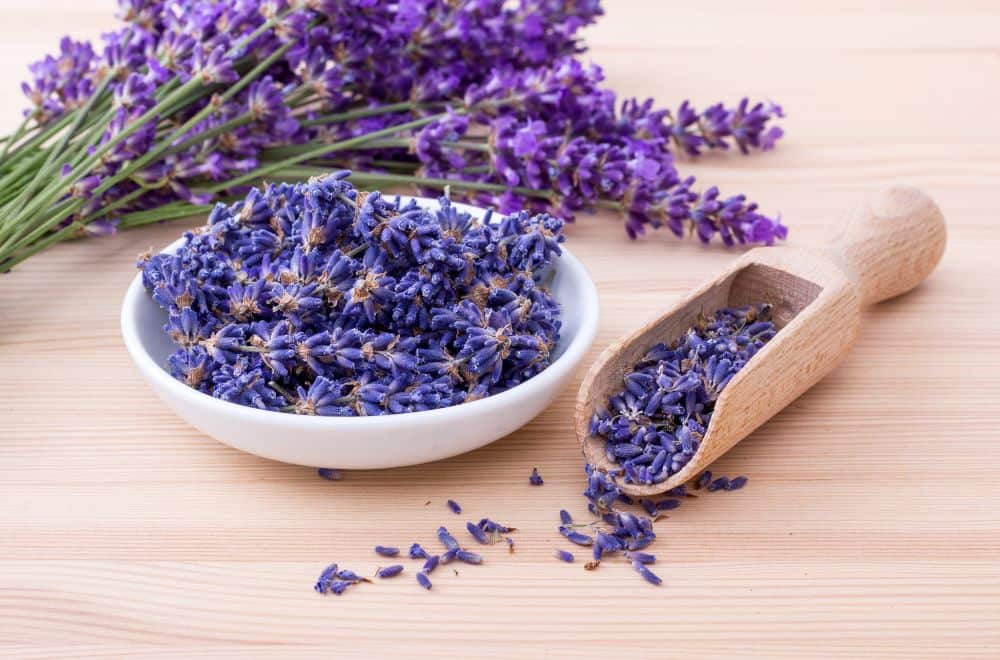
This beautiful fragrant plant is a natural ant repellent, thanks to the linalool it contains. The best option is to grow it in the garden to protect vegetables from invasive insects.
You can also boil its flowers or strategically drip a few lavender oil drops around to keep ants away from your home. Place dried flowers in cabinets to make clothes fragrant and these places insect-free.
8. Mint
This herb is an excellent addition to your home. Besides using it as seasoning, you can place its leaves in your home as efficient ant repellents. Another option is to plant mint in a pot and keep it inside the house. Be aware that mint plant is toxic to cats and dogs.
9. Thyme
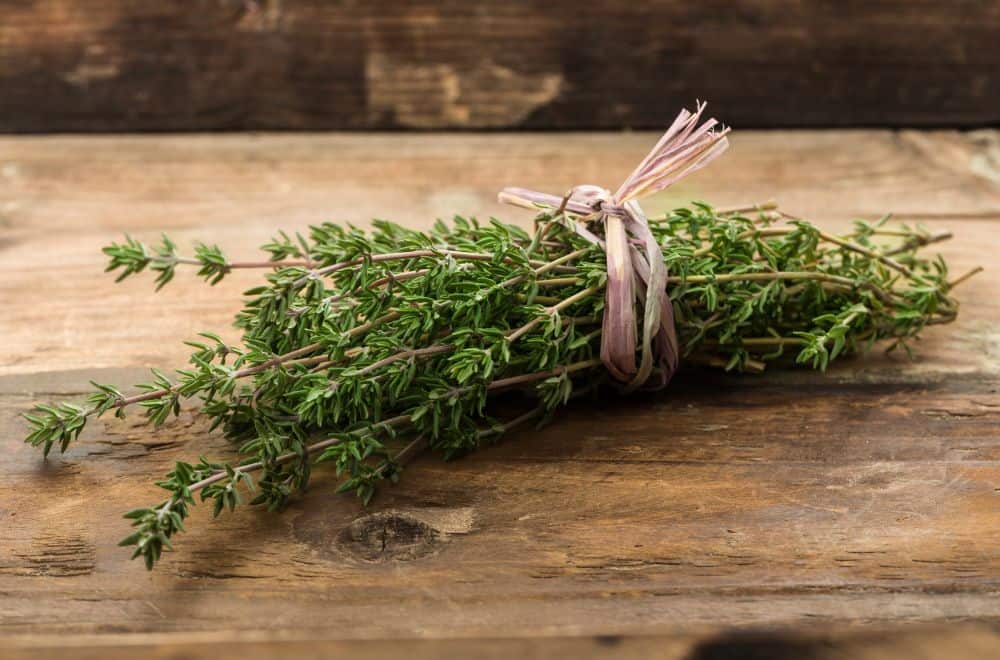
Planting thyme is an effortless method to get rid of ants in your garden. An additional benefit is that this plant attracts helpful pollinators.
10. Rosemary
Beautify your yard by growing aromatic rosemary and enjoy the advantage of its repellent properties. While people enjoy this plant’s smell, ants hate them, keeping them away from your home.
11. Basil
The most efficient way to use this herb is to plant it in a pot and place it on the windowsill. It contains an aromatic oil that attracts pollinators, while ants hate it. Another option is making a homemade spray and applying it around strategic entry points.
12. Chrysanthemums

These lovely flowers contain pyrethrins, chemicals highly toxic to most insects, including ants. Plant them in your yard or place a few blooms inside your home to protect it efficiently.
13. Rue (herb-of-grace)
Both fresh and dried plant parts keep ants away from roses in your garden but can burn human skin. Therefore, never apply rue directly to your body.
14. Garlic
Ants can’t stand the smell of garlic, so placing cloves in the kitchen repels these insects. Some other plants from the garlic family, like onion and chive, can deter ants from your garden.
15. Lemon juice and rind

Lemon juice destroys scent trails ants typically follow, so you should take advantage of this benefit. Make a lemon juice and water solution in a 1: 3 ratio and use it as an all-purpose spray or to wipe countertop surfaces down. Besides, lemon rinds detract ants from your cupboards and kitchen.
16. Citrus peel
You can use any citrus peels after squeezing the juice, including lemon, orange, grapefruit, and lime. Since artificial citrus smells are ineffective, you need to apply the real thing.
Besides ants, these peels also deter mites, mosquitoes, flies, aphids, and ticks. Arrange citrus peels on windowsills and in the kitchen and let them block ants’ pheromone trails necessary for mutual communication.
17. Cucumber peel
This veggie’s peel contains a chemical toxic to fungi ants consider food. Even though this method seems time-consuming, it is effortless and highly effective. Place peels along the ant paths and wait. A negative side is that cucumber potentially attracts rodents and roaches, so be careful when using it.
18. White vinegar
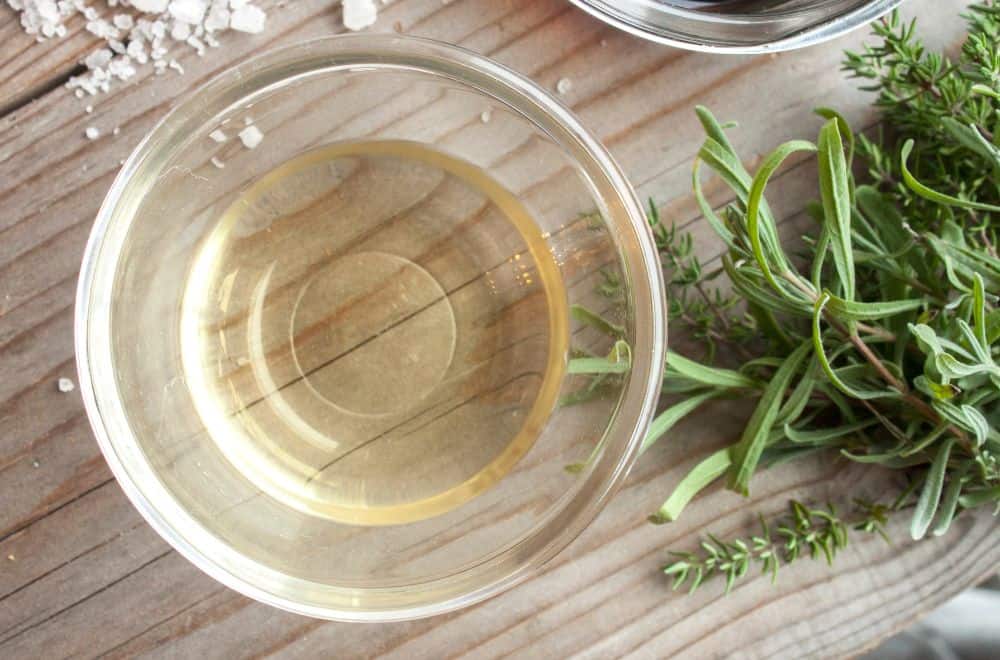
White vinegar has a double negative effect on ants. Its scent irritates these insects and eliminates scent trails, making their mutual communication impossible. Mix white vinegar and water in equal quantities and use this solution to clean all counter surfaces and the floor in the kitchen.
Even though this method is highly efficient, it is short-lived. As soon as the vinegar smell disappears, ants will come back. Therefore, you need to repeat the procedure a few times a day.
19. Cayenne powder and black and red pepper
Ants hate these spices since they destabilize their scent receptors. Sprinkle them in a line and make a barrier where necessary, or make a pepper spray, which is highly irritating for these insects.
20. Coffee grounds
Ants hate the scent of coffee, so you should get used to sprinkling coffee grounds in your garden and keep these insects away. The good news is that you can additionally use it as a fertilizer to enrich the soil with phosphorus, potassium, and magnesium.
You can also place a cup with coffee grounds on the windowsill, near food sources, or inside a fridge. Unfortunately, it also repels cats, so be careful to prevent your pet from running away from your home.
21. Chalk or talcum (baby) powder
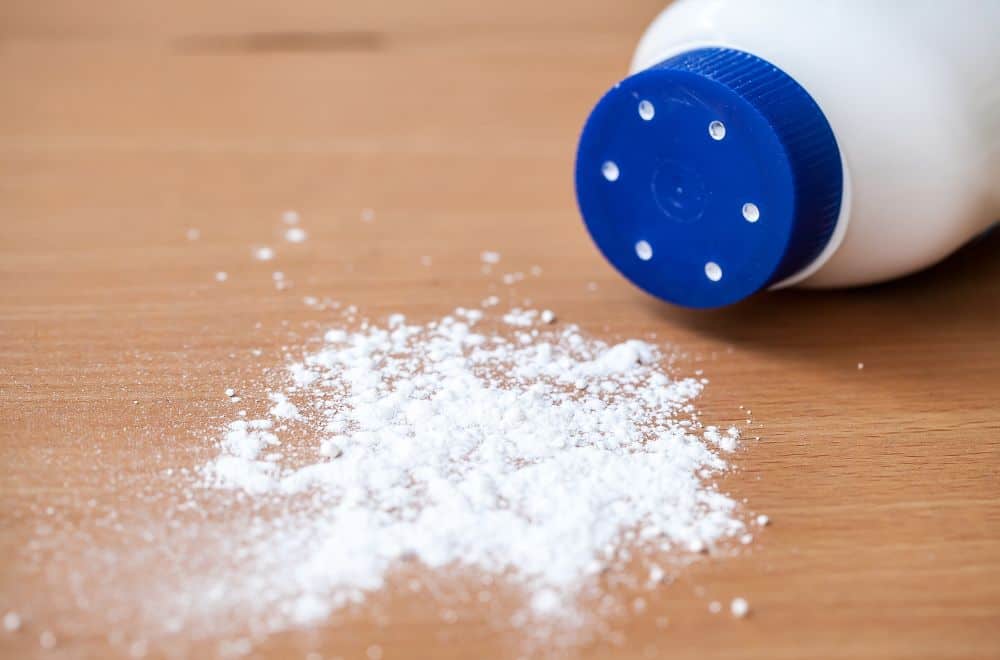
Ants find these powder textures repulsive, so you can eliminate them by making barriers. Use chalk to create a line across the threshold, or sprinkle baby powder in your garden and take advantage of calcium carbonate that disrupts ants’ scent trails.
Summary
Approximately 20 quadrillion ants live on Earth, so you can expect some of these annoying insects to enter your home. In most cases, there is no need to apply insecticides or harmful chemicals to get rid of ants.
It will be enough to use one of the scented home remedies that irritate them, and they will leave as soon as possible. An additional benefit is a fragrant air to your home since most of these products are attractive to humans.
